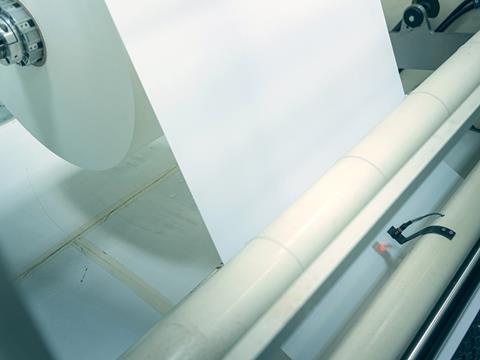
Qwarzo is a barrier coating made from silicon dioxide that can be used to replace plastic and PFAS on paper, textiles, and metal – and it has already been validated by brands like Unilever and Innocent.
Qwarzo says that products coated with its product comply with regulation on food contact materials as they become “highly resistant” to heat, cold, water, oil, vapour, chemicals, and breakage – while also being odourless, invisible, and leaving no unpleasant flavours.
The company’s products can be implemented using existing production lines or integrated tailored machines. In terms of potential applications, the coating can be used to create moisture and grease barriers for paper cups, cutlery, plates, straws, stirrers and other food and beverage containers.
Qwarzo claims that the coating can help products maintain their characteristics of recyclability and compostability. The product can be used in various formats such as reel and sheet coating, paper die cutting, and thermoforming – but also to a range of materials beyond paper.
One of the first major brand owners to put the Qwarzo coating into action was Unilever, who used it to coat paper-based spoons at its GROM gelato shops in the UK, France and Portugal.
Importantly, Unilever says that the new spoons are fully recyclable and compostable, while also being resistant to water and grease.
“Qwarzo’s technology can provide paper with barrier properties, making it resistant to water and grease. These characteristics make it a great fit to be in contact with our delicious ice cream. Importantly, by doing this, paper’s inherent recyclability and compostability are not compromised,” says Facundo Beltramino, Global R&D Packaging Materials Specialist at Hive – Unilever’s food innovation centre.
If you liked this article, you might also enjoy:
The L’Oréal approach to packaging sustainability
What steps is Apple taking to make its packaging more sustainable?
How did Brazil achieve its 100% aluminium can recycling rate – and can it be replicated in the EU?
Experts have their say on the EU’s Packaging and Packaging Waste Directive revisions













No comments yet